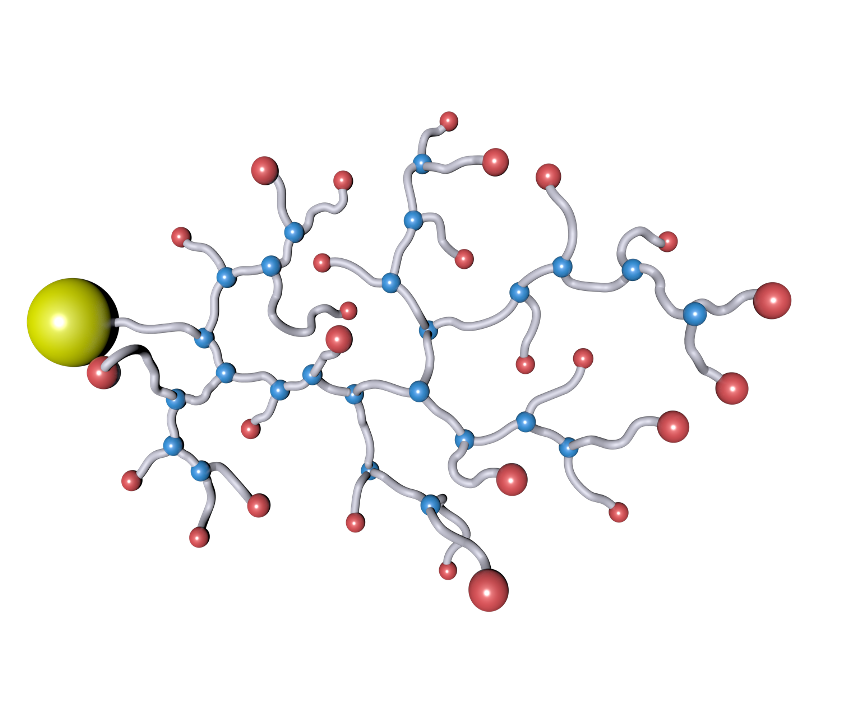Polymers in Building And Construction: Stronger, Lighter, and Extra Sturdy
Polymers in Building And Construction: Stronger, Lighter, and Extra Sturdy
Blog Article
Discovering the Varied Applications and Advantages of Polymers in Different Industries
Polymers, with their diverse series of buildings and capabilities, have actually become important in various industries, each enjoying special benefits from their application. Polymers. From enhancing security and efficiency in the automobile market to reinventing clinical tools in the health care sector, polymers play a pivotal function. Their environmentally friendly nature is modifying the landscape of sustainability practices. As we explore the midsts of polymers in electronic devices, we discover cutting-edge innovations, while their architectural honesty transforms the realm of building and facilities. The prevalent impact of polymers across markets is a testimony to their versatility and flexibility, forming the future of numerous sectors.
Automotive Field Applications
Polymers play a critical function in boosting the efficiency and toughness of different elements within the automotive field. These flexible materials are extensively used in the production of various parts, ranging from indoor components to under-the-hood applications. One prominent use of polymers in the automobile sector remains in the production of light-weight parts. By changing typical metal parts with polymer-based alternatives, cars can accomplish improved gas efficiency without compromising on toughness or safety and security.

Healthcare Industry Benefits
In different medical care applications, the benefits of using polymers are commonly recognized for their varied variety of advantageous residential or commercial properties. Polymers play an essential function in the health care market due to their flexibility, biocompatibility, and cost-effectiveness. Among the main advantages of polymers in healthcare is their capacity to be customized to particular demands, such as versatility, resilience, and biodegradability, making them optimal for a wide variety of clinical applications.
Polymer-based materials are extensively utilized in medical devices, such as catheters, implants, prosthetics, and medicine delivery systems, due to their biocompatibility and capacity to resemble all-natural cells. These materials can minimize the threat of allergic reactions or rejections, boosting individual security and outcomes. Additionally, polymers are lightweight, making them suitable for wearable clinical gadgets and guaranteeing patient convenience.
Additionally, polymers enable the advancement of innovative treatment approaches, such as hydrogels for tissue design and nanocomposites for targeted medicine delivery. Their ease of processing and sterilization makes them crucial for preserving high requirements of hygiene in medical care settings. Overall, the varied advantages of polymers add considerably to innovations in medical modern technology and patient treatment.
Ecological Benefits of Polymers

Moreover, polymers can contribute to energy cost savings due to their lightweight nature. In markets such as transport, light-weight polymer products can aid reduce fuel consumption and greenhouse gas emissions. Furthermore, polymers can make it possible for the growth of energy-efficient items such as insulation products that boost power preservation in structures.
In addition, polymers play a critical duty in reducing water air pollution. The usage of polymer-based purification systems can successfully remove pollutants and contaminants from wastewater, safeguarding water resources and ecological communities. On the whole, the ecological advantages of polymers make them valuable assets in promoting sustainability and environmentally friendly techniques across numerous industries.
Polymers in Electronics and Modern Technology
Taking into consideration the raising demand for ingenious and sustainable options in modern-day sectors, the integration of innovative polymer technologies in the realm of electronic devices and technology has actually arised as a pivotal method for driving effectiveness and efficiency. Polymers have transformed the electronic devices industry by making it possible for the production of lighter, extra versatile, and resilient digital tools. From mobile phones to medical gadgets, polymers play a vital role in boosting product layout and capability.
One useful source substantial advantage of polymers in electronic devices is their protecting buildings, which assist protect delicate electronic parts from ecological factors and electrical disturbance. Additionally, polymers are necessary in the development of adaptable screens, wearable modern technology, and printed electronics, using endless possibilities for developing smart and interconnected gadgets.
In addition, making use of polymers click for info in digital product packaging has actually resulted in improvements in miniaturization and thermal monitoring, enhancing the general efficiency and integrity of electronic systems. As technology remains to progress, the flexibility and flexibility of polymers will certainly drive even more technology in the electronic devices industry, shaping the future of technology.
Role of Polymers in Building and Facilities
Polymers supply countless benefits in the building industry due to their versatility, durability, and cost-effectiveness. One vital duty of polymers in building is their use in layers and sealers, offering protection versus environmental factors such as dampness, UV radiation, and rust.
Furthermore, polymers play an essential duty in lasting construction techniques by allowing the development of energy-efficient frameworks. Insulating products made from polymers help manage interior temperature levels, minimizing the need for home heating and cooling systems and inevitably lowering power usage. Furthermore, using polymer-based composites in facilities projects such as bridges and roads boosts their long life and reduces maintenance costs. Generally, the incorporation of polymers in building and construction and infrastructure displays their substantial influence on modern engineering practices. Read Full Report
Final Thought
In conclusion, polymers play an important function in various industries such as auto, medical care, environmental, electronics, and construction. From boosting gas effectiveness in lorries to boosting clinical devices, polymers offer countless advantages.
Report this page